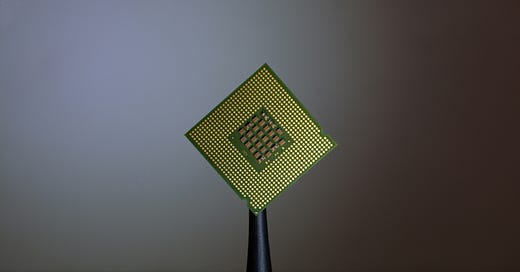How much will you pay under the new tariffs?
The average American couple will pay $1500 more under the new tariff policy
My husband and I will pay an extra $1200 a year under the new tariff policy.
In Georgia, the price tag is about $600 per person. For residents of most other states, the price tag will be higher.
Most economists, including myself, favor free trade with few if any tariffs. We get access to more goods at a lower price without tariffs.
I would love to stop here and tell you that’s all you need to know.
But you do need to know more. So, in this post and the next I’ll take you through the pros and cons of tariffs.
Most protectionist policy has one goal: to save jobs. Tariffs are a poor way to encourage job growth.
Under specific and limited circumstances, tariffs can be useful. Note that none of these are reasons are the ones touted by the current administration.
Here are the primary reasons for tariffs: [1]
Positive impact on employment
To a certain extent, this can happen. When the President imposed the first round of tariffs on steel in 2018, there was a minor increase in employment in the steel industry. But there was a larger negative impact on workers in related industries, like construction.
National security
Tariffs and voluntary export controls is supposed to limit the exposure of goods we make for the military. This includes job grocertain chips. The ability to keep these goods out of the hands of those who might do us harm is iffy, at best.
Consider steel production. While still considered a crucial part of military spending, the US already makes all the steel it needs for the military.
Currently, the effort is to protect and provide military grade chips. The Taiwan Semiconductor Manufacturing Company (TSMC) makes most of them in Taiwan. According to the Taipei Times, TSMC says reshoring chip manufacturing has increased costs at its Oregon facility by 50 percent. [2] Reshoring (or onshoring) means bringing the manufacturing back to the US,
This will drive up the prices of phones, computers, and other small electronics. We might instead consider friendshoring. We could put the factories in places that we trust, like Japan, which also has the ability, with lower labor costs.
Protect labor and environment from anti-competitive practices
Tariffs can also protect US workers from anti-competitive activities, such as goods from countries and companies that abuse their workers.
Textile and clothing manufactures, like Nike have been accused of unfair labor practices.
Tariffs can also complement climate initiatives. If a country undercuts clean air and water standards to short sell US companies, tariffs can help offset the price differences.
Offset unfair practices, like dumping, currency manipulation, and subsidies
China and other nations sometimes implement currency policies to increase the price (or value) of the US dollar outside our country. This causes the prices of their goods (our imports) in the US to fall. The prices of exported goods also rise. Then their demand for our goods (exports) to fall, while our demand for their goods (imports) rises. [3]
For example, in the writing communities I’m a part of, the increase in the value of the dollar with respect to Canada increased the price of their subscriptions. I have a friend who’s part of a yearly trip to north Georgia. She can’t come this year because the price for her is about 40 percent higher than it is for us.
This example is a problem without currency manipulation, but it illustrates the dilemma. If our prices are higher because of the value of the dollar, then we sell less.
Subscriptions are lost. Travel plans get canceled. Tariffs can offset currency manipulation. They can also protect us against dumping. Dumping is the practice of charging less than fair market value for products.
Industrialists in the early part of the twentieth century used dumping to steal the gasoline trade from smaller companies in the US. They priced their own gasoline below the cost of production to run them out of business.
A more current example: the US showed that China was pricing silica under the fair market price to reduce competition in 2017. The International Trade Association agreed with the US that the tariffs on silica were legal.
Many developed nations impose restrictions on imported food and drugs to protect consumers from faulty or dangerous goods. The Bioterrorism Act protects Americans from contaminated foods, whether deliberate of accidental. [4]
Rebuild manufacturing
Tariffs won’t necessarily do this. The manufacture of certain items, including toys and textiles, is not coming back to the US. In a recent report, toy manufacturers were moving their Chinese plants to India to avoid higher tariffs on Chinese imports.
And given that the US has an advantage in producing goods and services that require more technical skill, this is not an undesirable thing.
For many of the employees who worked in textiles and toy manufacturing, the damage has already happened. We may be better served by helping those who didn’t find other employment.
If businesses start reshoring, it may take too long to see the impact.
In the next post, I’ll look at the reasons against having tariffs.
Thanks for reading,
Nikki
[1] https://www.epi.org/publication/tariffs-everything-you-need-to-know-but-were-afraid-to-ask/
[2] https://www.csis.org/analysis/semiconductors-and-national-defense-what-are-stakes
[3] If you’re interested in knowing how this works, DM me.






Thank you! I'm learning so much!!!!!
We should work together with our allies, not attack them with tariffs :/